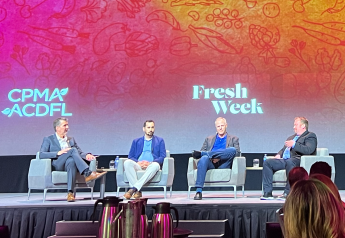Concern about climate change is real for consumers
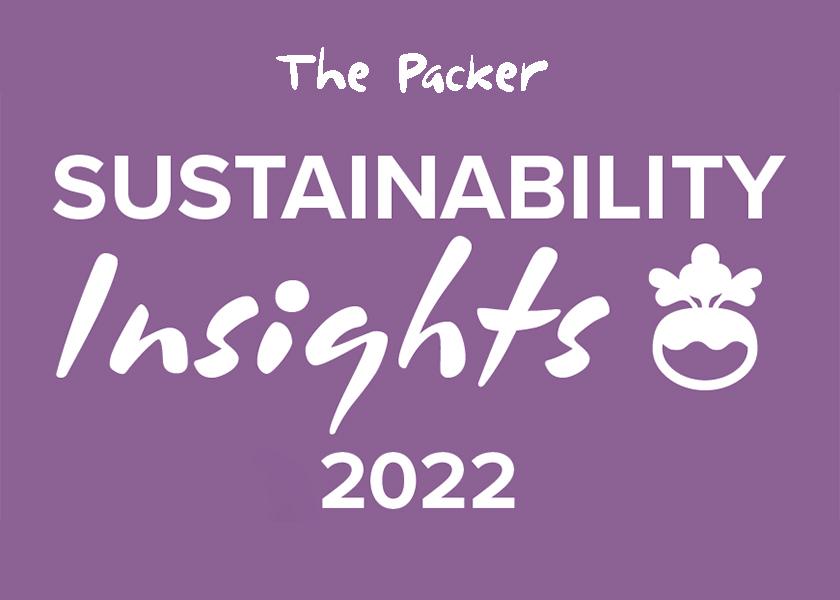
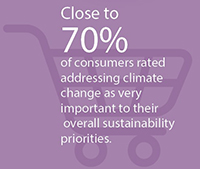 Concern about climate change is real for consumers surveyed by The Packer.
Concern about climate change is real for consumers surveyed by The Packer.
Close to 70% of consumers polled rated addressing climate change as very important to their overall sustainability priorities.
In response to the question, “How important is addressing climate change to your overall sustainability priorities?” consumers responded:
- Extremely important: 38%
- Very important: 25%
- Important: 35%
- Not very important: 6%
- Not at all important: 7%
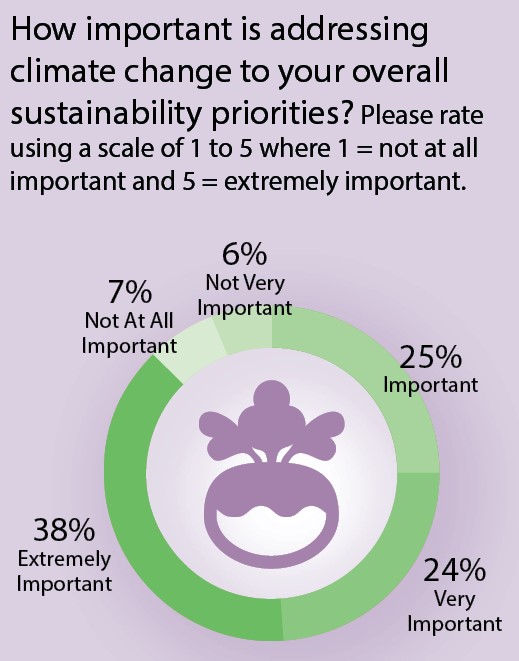
Climate change motivation
In fact, The Packer’s survey found that combatting climate change, improving human health, and reducing food waste were the most frequently cited reasons consumers might demand more sustainability.
Consumer reasons to demand more sustainability:
- Combat climate change: 35%
- Improve human health: 26%
- Reduce food waste: 26%
- It's the responsible thing to do: 24%
- Reduce landfill waste: 24%
- Reduce air pollution: 22%
- Reduce water pollution: 20%
- Animal welfare: 18%
- To feel better, overall: 18%
- Reduce deforestation: 16%
- Improve water quality: 15%
- Improve water availability: 14%
- Growing global population: 10%
- None of the above: 5%
- Other 0%
Information please
Consumers polled by The Packer were asked what information they wanted to see listed on food labels.
Close to half of consumers reported wanting details about chemicals used in the production/growth of food to be listed on a food label, according to survey results. Organic status, non-GMO and carbon footprint also were named by consumers in relation to wanted info on food labels.
Information that consumers want to see on food labels:
- Details about chemicals used in the production/growth of the food: 46%
- Organic status: 31%
- Non-GMO: 28%
- Climate-smart/carbon footprint from production: 27%
- Animal welfare certifications: 24%
- Fair trade standards: 21%
- Wildlife habitat: 17%
- Vegan: 12%
- B Corporation: 6%
- Other 3%
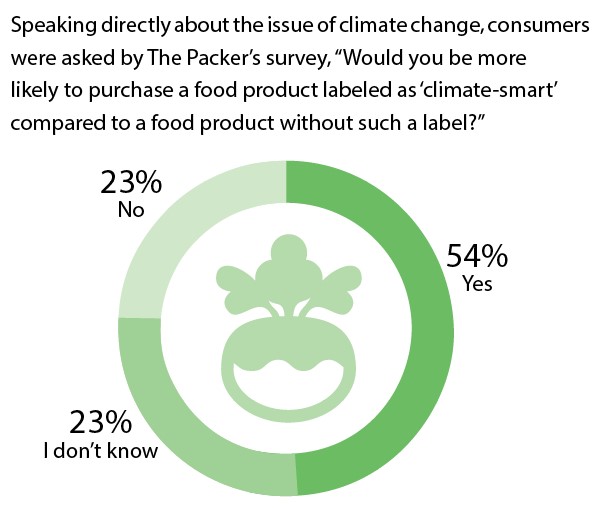
More than half of consumers reported being more likely to purchase a food product labeled as “climate-smart” compared to a food product without this label.
- Yes: 54%
- I don't know: 23%
- No: 23%
When asked, “What are you doing, or would you like to do to pursue a sustainable lifestyle?” more than half of consumers reported preferring recyclable packaging to help pursue a sustainable lifestyle.
How consumers pursue a sustainable lifestyle:
- I prefer recyclable packaging 54%
- I carefully select the brands I buy: 38%
- I carefully the ingredients I buy (fresh produce or packaged food): 36%
- I avoid disposable plastic products (straws, plates: 31%
- I purchase from brands that can demonstrate how they're addressing climate change: 25%
- I actively support global sustainability through associations, foundations, and movements: 23%
- I carefully select the retailers I shop at: 21%
- I purchase from brands that made diversity, equity and inclusion a priority: 19%
- None of the above: 13%
Demanding consumers
Approximately one-quarter of consumers reported being extremely likely to demand all factors measured to increase the sustainability of the food they purchase.
Responding to the question, “How likely would you be to demand each of the following to increase the sustainability of the food you purchase?” consumers chose “extremely likely” in these percentages for different options:
- Increase product labeling: 23%
- Limit my purchases exclusively to sustainably produced foods: 21%
- Ask retailers to carry more sustainable products: 26%
- Access scannable label that provides information on the product: 26%
- Access farmers/farms producing my food: 26%
- Increase government oversight: 22%

Specifically, 32% of consumers said it was “extremely important” to know how their food is produced, with 30% saying it was “very important.” Only 6% of consumers said knowing how food is produced is not important at all.
The Packer’s survey of consumers revealed recyclable packaging was cited by more than half of consumers as having a “very positive” impact on the sustainability of the food they purchase. Other attributes scored well, including low carbon footprint and biodegrade packaging.
Attributes rated by consumers that scored a “very positive impact” on food purchased:
- Recyclable packaging 57%
- Biodegradable packaging: 51%
- Compostable packaging 49%
- Low carbon footprint 50%
- Urban and vertical farming: 41%
- Biological inputs: 47%
- Low consumption lighting: 34%
- Transparency blockchain and other tech innovations 33%







